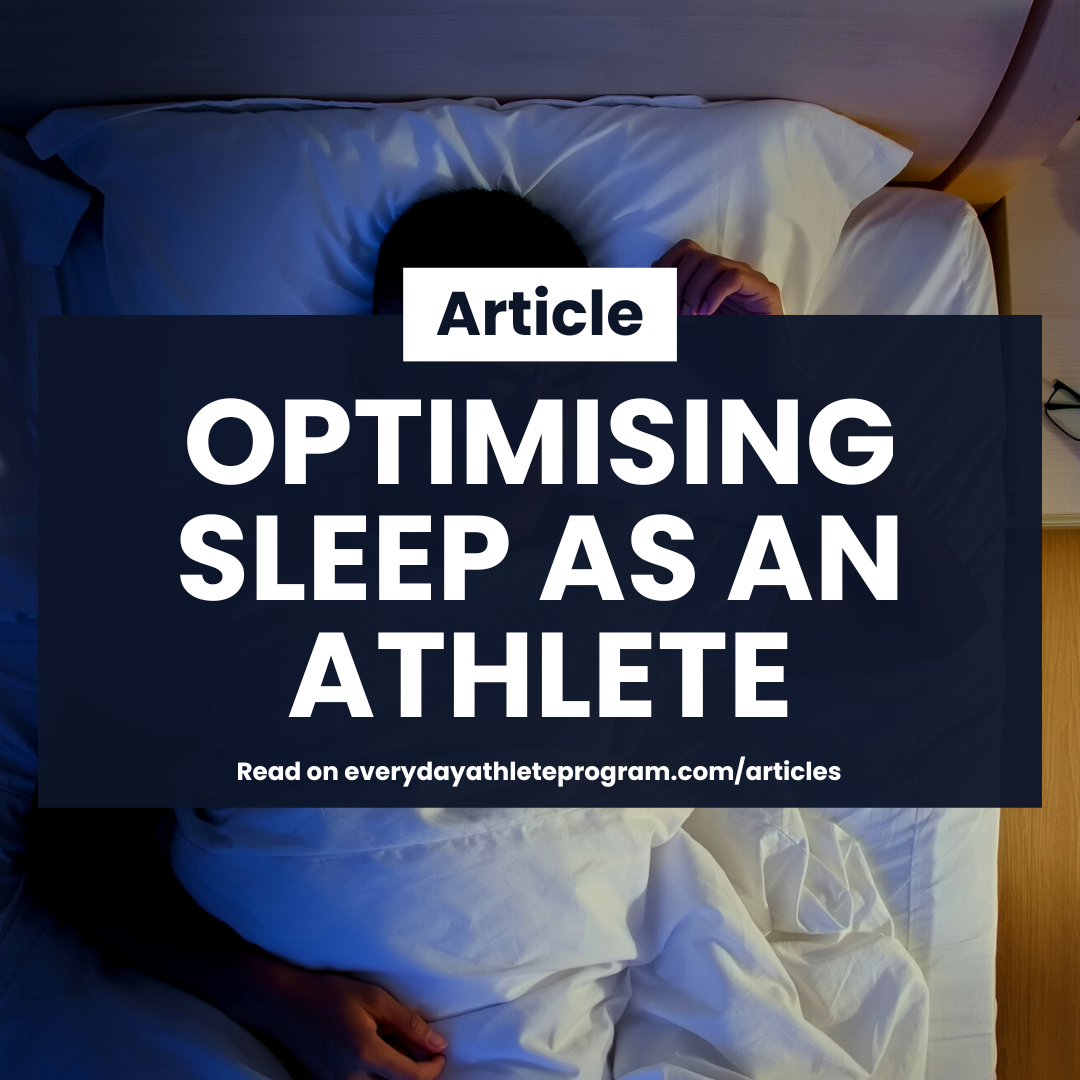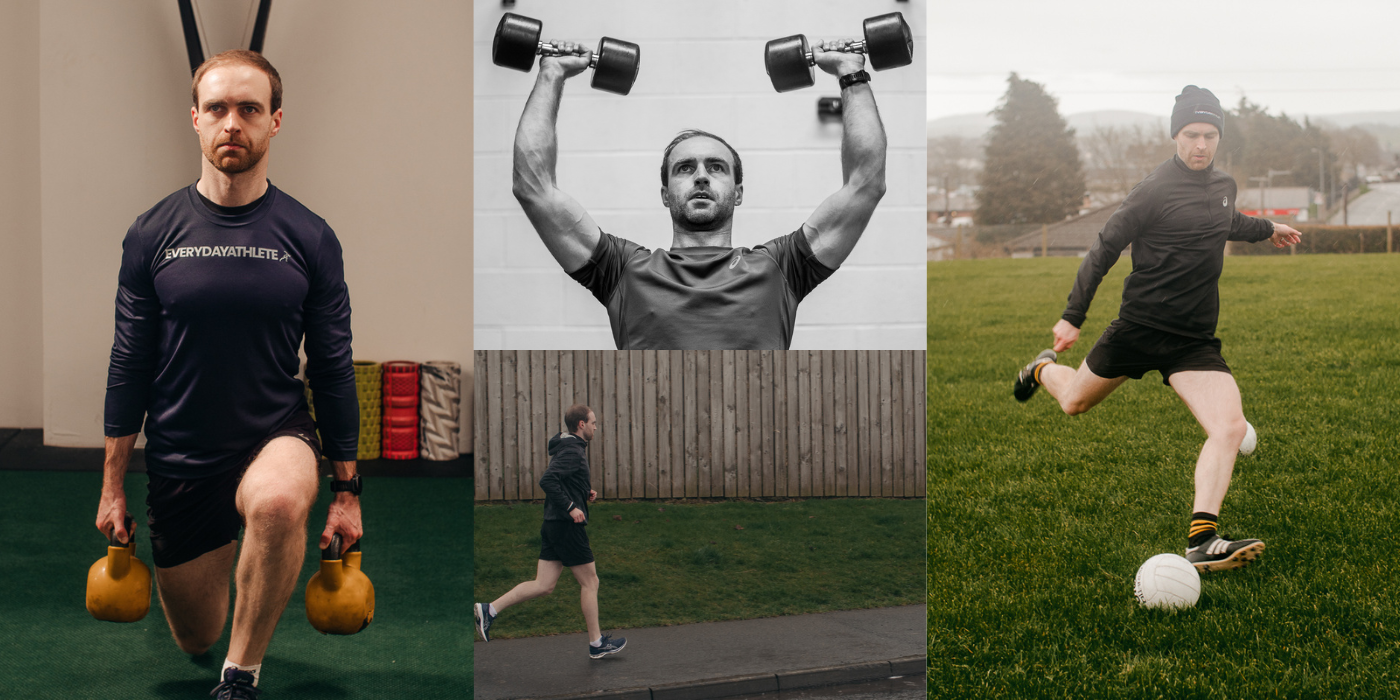There's a spike in car crashes on the last weekend of March every year.
Why?
Because time "springs forward" by an hour, and we all lose an hour of sleep.
That's how important sleep is.
In 2014, the U.S. Centre for Disease Control declared insufficient sleep as a public epidemic.
So with the general population suffering from not getting sleep enough, you can imagine how athletes, who may need even more sleep, can be affected.
"It's Fine, I Can Get Through it"
The problem with lack of sleep isn't just that you feel more tired all day (although you'd think that would be enough to get us to sleep more), it's that it affects your performance, fat-loss, muscle gain, and general health.
Performance
Studies have been done to investigate the differences in the performance outcomes in people who got different amounts of sleep, and people who got less sleep experienced greater perceived exertion (training/workouts felt harder), lower time to exhaustion (they ran out of steam more quickly), and slower reaction times.
As you can imagine, none of this is great for athletes, where these things are crucial.
Fat-loss
Sleep deprivation not only makes us hungrier, but also makes high-calorie, hyper-palatable food, (typically referred to as "junk food") more attractive to us.
More specifically, brain scans show that activity in the reward centres increases more in response to junk food, when someone is sleep deprived.
So whilst sleep doesn't necessarily directly affect fat-loss, it can affect your food choices, which obviously has a major effect on fat-loss.
Muscle Gain
There was a study that compared two groups over a series of weeks: one that slept 5.5 hours per night, and one that slept 8.5 hours per night.
Over the course of the study, the first group experienced 55% more fat gain, and 60% more muscle loss, despite both groups eating the same number of calories.
Muscle gain is dependent on putting a stimulus on the muscle, and then allowing it to recover.
If we skimp on sleep, we reduce both the stimulus and recovery sides of the equation, and majorly sell ourselves short in terms of muscle gain.
Health
Lack of sleep can also have a huge effect on health.
In addition to the aspects already mentioned, also affected are things like memory, inflammation, testosterone levels, growth hormone levels, and immune system function.
Getting sick keeps you out of training, which means less time practicing your skills, getting fitter, getting stronger, and competing in your sport.
How Much Sleep Do We Need?
Studies suggest that the required amount of sleep varies a lot between individuals but 7-9 hours is about right for most people.
Mike Matthews wrote an article on sleep, where he spoke about a technique for finding out how much sleep you need:
Take a 2-week testing period (like a holiday, for example), where you go to sleep at the same time every night, without setting an alarm.
You'll probably sleep a lot in the first few nights, as you catch up on the sleep debt you've built up, but in the second week, you should start to wake up at about the same time each day.
The amount of time that you sleep waking up naturally is likely to be the amount of sleep that is optimal for you.
Tips For Better Sleep
It's not just about the amount of sleep you get. It's also about the quality of that sleep.
There are a few proven ways of improving the quality of your sleep.
1) Sleep in a Cave.
By this, I mean make your room as dark as possible, as quiet as possible, and cool (cool enough that you'd need to put a t-shirt on to be comfortable outside of the bed covers).
2) Avoid Screens
Screens like the T.V., laptops, and your mobile phone emit a type of light referred to as blue light.
The brain recognises this in a similar way to the sun, and since the body's sleep clock (or more technically, circadian rhythm) is partially controlled by exposure to sunlight, the systems that would otherwise be telling your brain it's time to sleep, won't do so, and you may struggle to fall asleep or your quality of sleep may suffer.
That’s not to mention the effect of the stimulation from the type of content you’re likely to be consuming.
Having a cut-off time of one hour before bed can help reduce this issue.
3) Have a Bedtime Routine
Why do some of us have a pre-training or pre-competition routine?
At least in part, it's because we know that that routine puts our body and mind into the right state to undertake the task at hand.
So, we know that routines can affect our mental state.
The same is true when it comes to sleep.
A good sleep routine will put our body and mind in the right state to fall asleep and get into a deep sleep.
Again, this will vary for each person, but generally, it should involve things that progressively relax you.
Some suggestions would be foam rolling, easy stretching/movement, reading a book, drinking caffeine-free tea, writing, chatting with someone, having a bath, etc.
4) Have a Stimulant Cut-Off Time
Caffeine can take about 5 hours for half of it to leave your system, meaning that it could affect your sleep for even longer than that.
For that reason, it is recommended to restrict coffee or other caffeine products after mid-day, in order to optimise sleep.
Nicotine is another stimulant that should be avoided in the evening.
Alcohol can also have an adverse effect on sleep.
Of course, it can initially make you fall asleep more quickly but as time goes on, during sleep it tends to act like a stimulant and hamper your ability to get into a deep sleep.
It's been said recently, that if sleep was a supplement, it would be the best supplement available (and it's free!).
Hopefully, you can now see why that might be the case.
Article Written By Conor O’Neill
Conor O’Neill is a Nutritionist, Strength & Conditioning coach, Psychologist, and Author.
He has helped 1000+ everyday athletes to pursue excellence in their physique and performance through optimising their nutrition, training, and psychology.
You can find out more about The Everyday Athlete Program by going to everydayathleteprogram.com/coaching.


